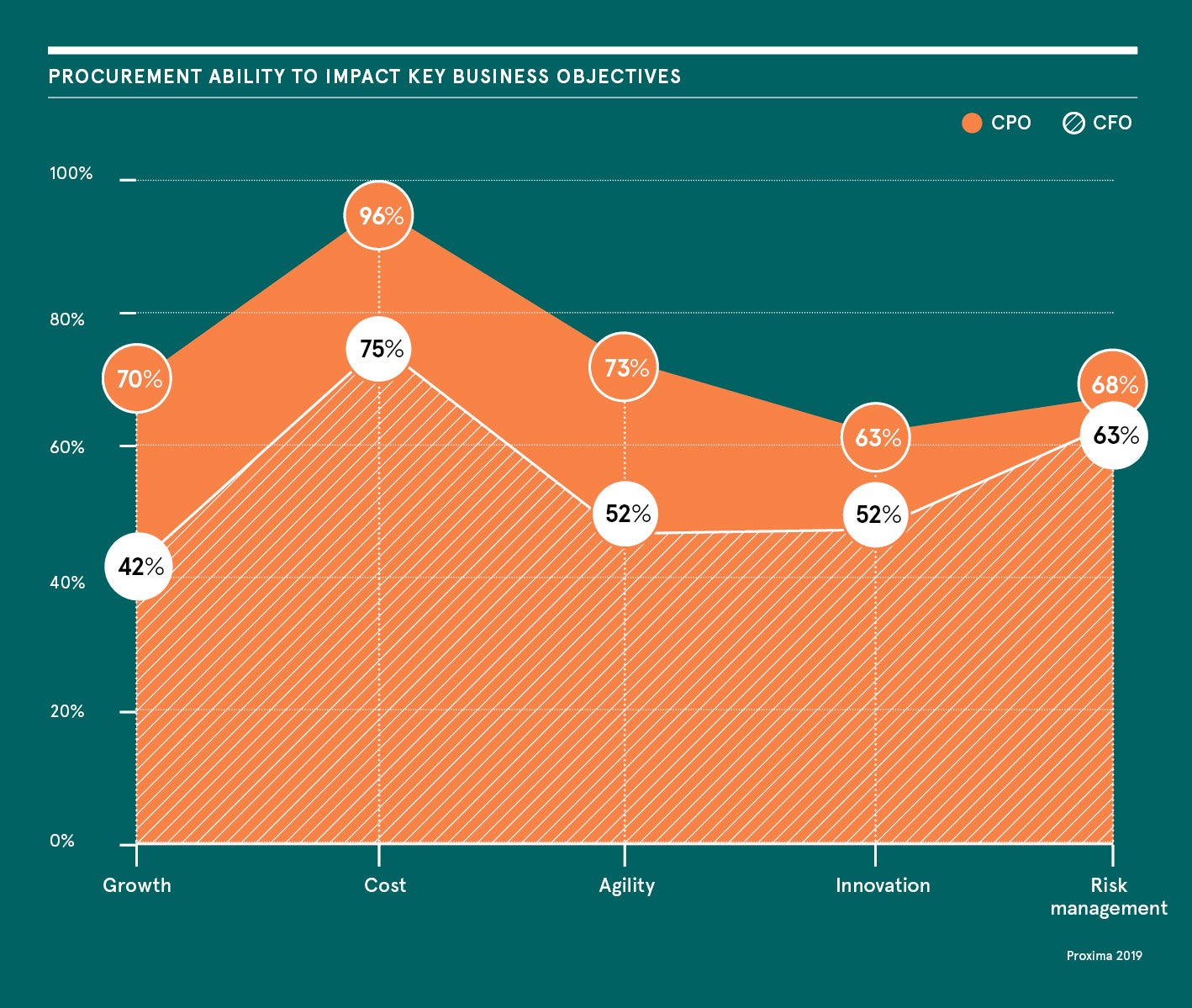Procurement as we know it, is dead. Actually that’s not entirely true. Much of what we do today is still very relevant if often a little cumbersome. However, a new breed of procurement is emerging as organisations seek to be faster, more innovative and, above all, more agile.
We must help organisations improve using our knowledge of markets to inspire and challenge our customers
“Macro-economic conditions are tough,” says Edward Winterschladen, managing director, Europe, for specialist procurement consulting firm Proxima. “It seems counter-intuitive to suggest that this could be a great time to invest and innovate. This is the blueprint for the agile organisation, thinking differently about suppliers, procurement and their role in driving competitive advantage.”
Importance of suppliers
Simon Geale, Proxima vice president for client solutions, says: “For the average business, supplier expenditure accounts for approximately 80 per cent of revenue. Much of an organisation’s ability to move fast and grow lands on how they work with their suppliers.”
It wasn’t always like this. Ten years ago, many organisations had not seen the need to focus on suppliers as a source of innovation or competitive edge. “Most organisations have now noted their dependency on suppliers, and the importance of understanding and managing external costs,” says Mr Winterschladen. “But many procurement approaches are still fairly traditional.”
Traditional procurement has seen rationalisation, long-term plans and a narrow focus on cost. This may need to change if we seek first-mover advantage and organisational agility. “At times, a simplified supply base can work against these goals, large suppliers can be slower and have more to lose than their smaller, hungry and more nimble counterparts,” he says.
“Of course, it is not always that simple. There are a range of approaches and we must adapt according to the circumstances. Modern procurement has to be smarter and more agile than in the past.”
Mr Geale adds: “Knowledge is the new currency and knowing how to apply it is the new skill. The success of a procurement function will depend upon the knowledge they have and their ability to translate that into successful and fast delivery.”
Changing face of procurement
Procurement touches most parts of an organisation; however, for many their sole interaction is the experience they have when they have a new or changing requirement. “There is so much more to it than that,” says Mr Winterschladen. “This might explain why historically the function has struggled with its identity and successful transformation.”
A model developed by Proxima views procurement evolution as a series of sequential steps: transactions, sourcing, category management, business partnering, knowledge partners and collaboration.
“We looked at a number of organisations and found that this was a common path. In moving forward, the chief procurement officer (CPO) was both responding to a weakness - fixing something – and seizing an opportunity - innovating or growing the function. For example, business partnering evolved because procurement had built category management teams that weren’t talking to the business; now that those conversations are happening, procurement needs to have something interesting to say,” Mr Winterschladen explains
Mr Geale adds: “As we evolve, a clear distinction starts to emerge between the technology, skills and capabilities needed. The more developed the function, the more it relies on knowledge and soft skills to succeed. And so a successful CPO will be looking at a broad range of capabilities.”
Avoiding digital paralysis
Some are convinced digital will be a catalyst. Yet for many CPOs, digital is creating a state of paralysis, rather than acting as a call to action. “There is a lot of hype,” says Mr Winterschladen. “We are starting to see how technology will transform much of what we do in procurement, but for many this will be over the next decade, rather than the next couple of years.
“Most past innovations have focused on process and control, which is aligned to the early stages of functional evolution. I’d expect the more game-changing developments to be looking at data and knowledge, and how we quickly assimilate information and make rapid decisions. The procurement function and the procurement person of the future will be empowered by and not wholly replaced by digital.”
Procurement may find itself taking an “app store” approach with numerous specialist solutions appearing within a more open architecture. “This is an important time for the legacy tech providers needing to respond to niche solutions coming to market that do exactly what they need to do and at a lower price point,” says Mr Geale.
Challenging stakeholder perceptions
Digital and transformation are not just happening to procurement, of course. “We must help organisations improve using our knowledge of markets to inspire and challenge our customers,” he says. “They should be looking to procurement to understand how suppliers can reshape their thinking.”
Despite the power of procurement to drive change, it would appear chief financial officers (CFOs) are not convinced of the value of the procurement function. Recent research for Proxima shows that only around half of CFOs believe procurement really impacted growth, agility or innovation.
Around 60 per cent of functions report into finance. So this is pretty disappointing for a function that is trying to move away from savings as the key measure,” says Mr Winterschladen.
Capability challenge
Suppliers are critical to the future of business. Procurement must be a key business enabler, but a range of capabilities and knowledge are needed to shine. This highlights another challenge. Demand for talent and experience is now outstripping supply, companies are therefore looking at longer term strategies to up skill their existing teams, or in the short to medium term turning to external specialists for capacity and capability.
This is where Proxima can help. The firm, set up 25 years ago, works with some of the world’s largest companies across many sectors. They employ a new breed of consultant: procurement practitioners from industry, experts in markets, who know how to identify where value can be generated quickly and how to effect change.
“Analysis and sharp suits are not enough, you need experience, stories and empathy to effect change,” says Mr Geale. “You also need the type of current and relevant knowledge that a firm such as Proxima brings. The days of being able to keep all that in-house are gone.”
There are businesses out there that are already enjoying the spoils of this experienced, immersed and accelerated approach to procurement. In the future more will follow.
Proxima is a world leading specialist procurement consulting company helping organisations to enable better business performance through procurement. For further information please visit proximagroup.com



